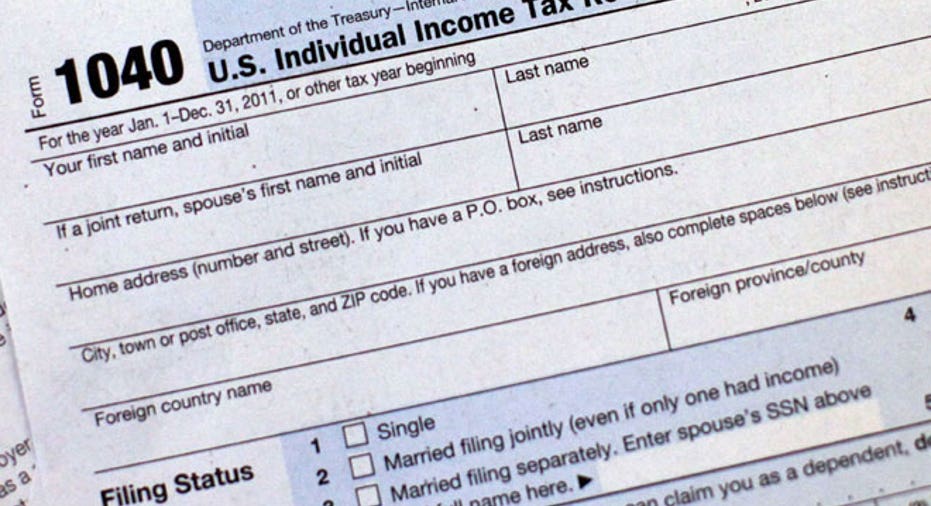Top 12 Tax Deductions for the Self-Employed

As a self-employed individual, you understand value and the need to meticulously watch and control expenses. That is especially true of taxes – one of the largest and most convoluted expenses you will incur. To survive and thrive, you must take advantage of all potential deductions – including the twelve listed below.
1. Retirement Plans – Not only are retirement plans a good idea; they are also usually the best tax advantage available to a self-employed person. The funds that you invest are tax-deductible and the growth is tax-deferred. Any qualified plan will suffice, including a 401(k), Simplified Employee Pension (SEP), or a Savings Incentive Match Plan for Employees (SIMPLE) IRA.
2. Self-Employment Tax – You effectively pay tax as an employer and an employee, therefore you may deduct the 50% component of your self-employment tax that an employer would typically pay for you.
3. Health Insurance Premiums – Your health insurance premiums, as well as those of your spouse and dependents, may be deducted if you meet one of a series of criteria listed in IRS Tax Tip 2013-43. Most qualify through showing a net profit from self-employment on Schedule C. This deduction does not apply if you are eligible for coverage under your spouse’s health plan.
4. Depreciation – Business-only equipment may be depreciated assuming the asset generates income and has a useful life of more than one year – otherwise it is treated as a business expense. Dual-use equipment such as a computer used for both work and home purposes requires special consideration – for details see IRS Publication 946, “How to Depreciate Property.”
5. Office Supplies – Items purchased solely for your business use that do not qualify for depreciation may be deducted as regular business expenses. Be sure to keep your receipts, and be prepared to defend and prove the business-only use.
6. Communications Expenses – Internet and phone provider expenses are deductible in the percentage they are used for business. Partitioned bills from the provider are helpful, otherwise you need separate forms of proof of the percentage of business use.
7. Interest – Interest on loans related purely to your business is deductible. Business credit cards are included, as they are a form of a short-term loan – but be sure to keep a strict line and never use your business credit card for personal expenses.
8. Home Office – The home office deduction is falling out of favor as it is considered a red flag for audits – but if you really meet the qualifications, you should take advantage. The space must be your principal place of business and must be used “regularly and exclusively” for business purposes. Details are available in IRS Publication 587, “Business Use of Your Home.”
9. Advertising and Promotion Costs – This covers items from literal media advertising expenses to business cards and brochures.
10. Mileage – You can claim business-related driving expenses at the standard mileage deduction (56 cents per mile for the 2014 tax year) or as the actual expenses including fuel, depreciation, licensing and repairs/maintenance. Be sure that business and personal use are clearly separated.
11. Other Travel Expenses – Business-related travel is 100% deductible while the meals and entertainment components are 50% deductible. The IRS has increased scrutiny looking for dual-purpose trips oriented toward pleasure instead of business, as well as unusually large meal/entertainment deductions. Keep excellent records and be prepared to defend borderline claims – if the expense claim is worth the risk.
12. Educational Expenses – Seminars, enhancement classes, professional dues and subscriptions, and other expenses related to furthering your business-related knowledge are deductible. However, make sure the educational expense is related to your line of work.
The first three items in the list are extremely important, as they are “above-the-line” deductions that directly reduce your taxable income and may be claimed without itemizing.
Make sure you keep excellent records to back up your claims, and do not hesitate to seek professional assistance if you need it. Self-reliance is an important part of being self-employed, but a side effect of that self-reliance is unusual stubbornness. Get any professional help that you need, because self-employment is stressful enough without the cloud of a potential IRS audit.
More From MoneyTips.com:
Six Crucial Tax DeductionsFile Your Taxes for FreeWhat to Do When Tax Forms ArriveTaxes by State



















